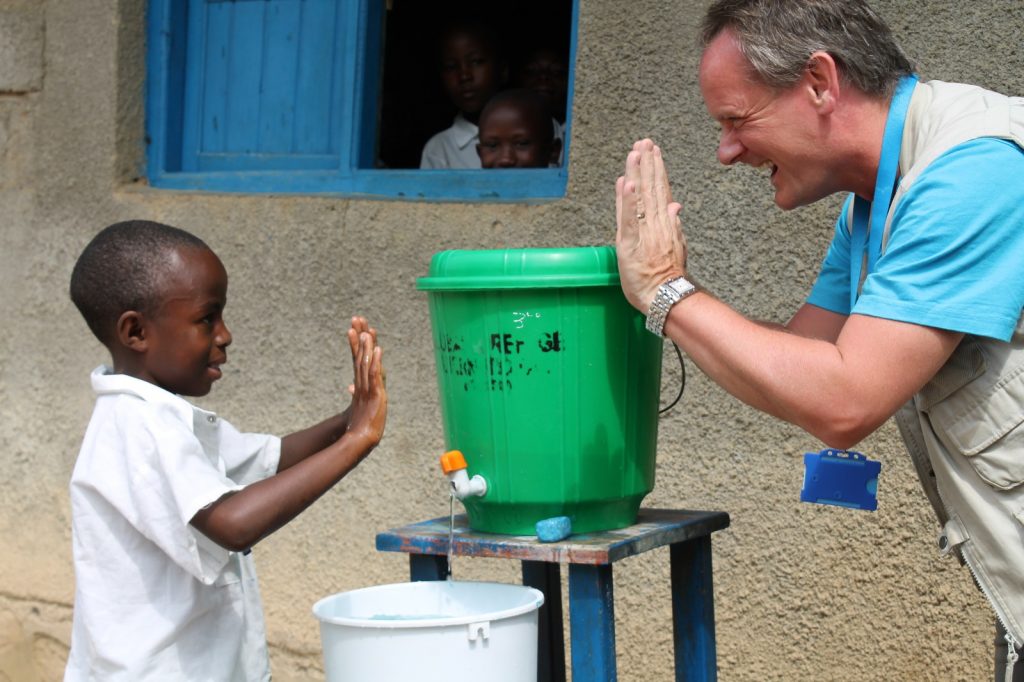It is September
Up and down the country parents have handed their children over into the care of their schools after a long Summer. That first year of school is bitter-sweet. Hopes are high. But if children are to thrive, we must let go of the control. As any parent will tell you, that requires huge trust and it is a risk. Your child is vulnerable in that moment, but it is a risk worth taking.
Thankfully, teachers will work hard to support and include families. But there is another group in whom we place enormous trust when it comes to our child’s safety. It is other parents.
Unvaccinated school communities
If your child is unlucky enough to find themselves in a school community where even a small number of children are unvaccinated, they are at risk. Measles is a particular threat because it is highly contagious. It can cause chest infections, fits, ear infections, swelling of the brain and brain damage. Sadly, measles can be fatal. Perhaps we don’t say that enough. Three people died in Ireland in 2000 during an outbreak of 1,600 cases; that’s death for one in every 500.
Vaccines are a life-saver
UNICEF is the UN’s children’s rights organisation. We believe that it is a child’s right to be vaccinated. Perhaps more than any other organisation UNICEF has seen the power of vaccines to save lives children’s lives. Access to vaccinations since the 1980s has brought a dramatic decrease in the number of under-five deaths around the world. Specifically, measles vaccinations averted an estimated 21.1 million deaths between 2000 and 2017. That is an astounding number of children and shows the power of vaccinations.
At UNICEF, vaccines are our business. In 2018, UNICEF procured 2.4 billion doses of vaccine, reaching nearly half the world’s children. This organisation has driven down the price of vaccines for babies worldwide to an all-time low. UNICEF supports countries to strengthen their public health systems with the aim of vaccinating all children with routine immunisation and enabling health systems to conduct emergency campaigns and better train and equip health workers.

Recently UNICEF and the World Health Organisation released data that showed 20 million children worldwide, or more than 1 in 10, missed out on lifesaving vaccines for measles, diphtheria and tetanus in 2018. Meanwhile, cases of measles increased in 98 countries around the world from 2017 to 2018, with cases in Ireland growing by 244%, from 25 in 2017 to 86 in 2018. Since the beginning of 2019, 33 cases here at home have been confirmed while 20 more cases have been reported.
Don’t risk it
Let me speak plainly. Failure to vaccinate a child is to risk that child’s life. Even when diligent parents do vaccinate their children those children will still be at risk if they are members of a community where vaccination rates fall below the 95% the World Health Organisation and HSE recommends.
A vaccination rate of 95% will ensure ‘herd immunity’. Herd immunity provides protection for the small number of unvaccinated community members (5% or less) who perhaps cannot be immunised because their immune system is compromised through treatment for cancer or because they are too young.
Ireland could lose status
The UK recently lost its status as ‘measles-free’, and there are concerns about Ireland’s measles-free status given decreasing vaccination rates and the increasing number of cases.
In Ireland coverage of the first dose of the combined measles, mumps and rubella vaccine has been approx. 92% for the past ten years. Coverage of the second dose is not reported but we know from recent measles outbreaks that coverage with the 2nd dose is too low. We need to do more to push both rates above 95% in order to protect Irish children.
Travel is a danger
Most of the measles cases confirmed this Summer were linked to travel. Many European countries are experiencing outbreaks. The back-to-school period presents challenges in this regard as children return to school after overseas holidays.
There is only one way to protect your child from dangerous diseases like measles and it is to vaccinate them. If your child is not up to date on their vaccines, make an appointment today. All children can get the MMR vaccine, free of charge. The first dose is due at 12 months and the second dose should be given at age four or five, through school. If you yourself are not vaccinated, get vaccinated. Don’t be responsible for endangering a child’s life.
Together with governments, communities and parents, we all need to do everything we can to protect every child.
Peter Power is the Executive Director of UNICEF Ireland. Children’s Rights organisation UNICEF vaccinated 19.6 million children against measles in 2018. Every year the organisation procures billions of doses of vaccines, enough for almost half of the world’s children. In the DRC this year, measles has killed more people than Ebola.
You can support our emergency work, including by donating to vaccinate children in need here
